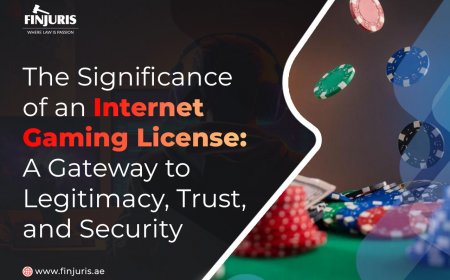Top iGaming Payment Solutions in the UAE (2025 Guide)
Explore top iGaming payment solutions in the UAE for 2025. Learn about PSPs, legal compliance, crypto, and secure transactions.
The iGaming world has changed quite dramatically in recent years, with the Middle East and the United Arab Emirates (UAE) in particular, becoming a more attractive destination for digital gaming entrepreneurs and investors alike. With a greater push towards a regulated gaming sector in 2025, the UAE is allowing many local and international operators to develop online casinos, sportsbooks and gaming platforms. While obtaining a licence and developing gaming content is important, one of the most important and complicated aspects of launching a successful iGaming business in the UAE, is selecting a controller suitable payment solution.
iGaming payment solutions in UAE need to navigate a special combination of regulatory compliance, financial security, and user expectations. Providing users with the ability to seamlessly deposit and withdraw funds, provide multiple currencies (including crypto), and integration with iGaming software are important features to have. In this guide, we outline the legal framework, the features to look for in your payment provider, the top iGaming PSPs, the suggested role of crypto payments, and how to overcome hurdles in this sector. This guide is ideal for casino operators, sportsbook owners, fintech investors, or gaming startup entrepreneurs working in the UAE. You'll find everything you need to know to assess your payment infrastructure ahead of 2025.
Read More: Gaming License in UAE: Key Developments and What It Means for Investors
The Legal Framework Surrounding iGaming Payments in the UAE
Legalized gambling in the UAE is a new development. Historically, gambling was prohibited under Federal Law, citing Islamic compliance. The formation of the General Commercial Gaming Regulatory Authority (GCGRA) in 2023 is the first step toward establishing a regulated and structured gaming framework. Beginning in 2025, all gaming-related activities will be licensed and regulated by the GCGRA. The GCGRA is also responsible for approving payment service providers (PSPs) and payment processors on behalf of the iGaming industry.
Legal iGaming operators are required to observe all rules and requirements establish by the GCGRA and the UAE Central Bank that relate to the AML, KYC, and data privacy guidance for payment solutions that process online gaming transactions in the UAE. Payment solutions must:
- Operate under a valid license or have a relationship with a licensed operator
- Have secure transaction processing infrastructure
- Conduct due diligence on the users of the payments
- Report any suspicious transactions to authorities
If a user lacks a license, especially if the user is an offshore entity targeting UAE users, they are committing a serious offence and can lead to blocking of their domains, fines and blacklisting as a business.
Read More: Understanding the General Commercial Gaming Regulatory Authority (GCGRA) Gaming License in the UAE
Significant Aspects to Consider When Selecting an iGaming Payment Method
Not all payment service providers (PSPs) are prepared to meet the needs of iGaming operators. Operators must carefully screen potential partners based on functionality, security, and compliance. Here are the significant aspects to examine:
- Compliance Requirements: A PSP must comply with GCGRA, Central Bank directives, and international AML/KYC standards.
- Multi-Currency Payments: It should be easy to make payments in AED, USD, EUR, GBP, and top tier cryptos (USDT, BTC, ETH).
- Accepting High-Risk Merchants: Gaming is a high-risk industry, PSPs should provide tailored onboarding with prompt processing.
- Chargeback and Fraud Management: Should have built-in tools for identifying fraudulent transactions as well as tools for managing disputes.
- On-Demand Reporting: View Dashboards for transaction monitoring, user behavior analysis and reconciliation.
- Integration: iGaming compatibility (EveryMatrix, SoftSwiss), with CRMs, wallets etc.
- Support: 24/7 multilingual technical support, with dedicated account management.
These features are important for trust building for players, financial compliance and future business scalability.
Top iGaming Payment Solutions in UAE (2025 List)
As of 2025, several PSPs have emerged as reliable partners for iGaming businesses in the UAE. Below is a curated list of top solutions based on regulatory alignment, technology, and market presence.
1. PayTabs
PayTabs is a regional fintech powerhouse offering merchant accounts tailored for high-risk verticals like iGaming. They support local AED processing, quick settlements, and white-label services that allow operators to fully brand their payment flows.
2. Checkout.com
Checkout.com is a globally recognized PSP that supports gaming operations with robust infrastructure, fraud prevention tools, and large-scale processing capabilities. Their modular API system is ideal for sportsbook operators and platforms handling high-volume betting traffic.
3. Stripe (for Ancillary iGaming Services)
While Stripe doesn’t directly support gambling transactions, it is often used by iGaming affiliates and service providers within DIFC or ADGM jurisdictions for non-gaming transactions like memberships, promotions, or merchandise.
4. Nuvei
Nuvei is one of the few international PSPs that actively support licensed online casinos and betting platforms. Their infrastructure includes credit card processing, e-wallets, direct bank transfers, and crypto support, all under a single interface. Nuvei is especially favored for its high approval rates and gaming-friendly policies.
5. Astropay
Astropay has become a popular option among sportsbook operators targeting MENA players. Its prepaid cards and localized wallets are user-friendly, and the solution supports seamless transactions even in markets with regulatory constraints.
6. CryptoPay (via third-party gateway integrations)
For operators looking to accept digital assets, CryptoPay and similar platforms offer easy plug-ins for accepting stablecoins like USDT and traditional crypto like BTC and ETH. Integrated KYC and blockchain monitoring tools make it easier to stay compliant.
Crypto Payments for iGaming in UAE
Cryptocurrencies are rapidly becoming a favored payment method in the iGaming world because they are fast, cheaper and available everywhere. With players seeking more privacy and faster settlement, crypto payment solutions are gaining popularity among UAE-based platforms.
Increased Adoption Across Online Casinos: Many operators who use blockchain-based payments boast higher success rates with transactions as well as less chargebacks. This is particularly beneficial for VIP players or high-stake games where swift access to funds is paramount.
Blockchain Compliance and Smart Contracts: More advanced platforms provide AML compliant wallet monitoring some smart contract technology as well to automate payouts, rewards and game outcomes. These solutions provide transparency and regulatory compliance with payment service providers.
Advantages and Disadvantages of Crypto Gateways
Advantages:
- Faster settlement (minutes vs days)
- Global reach
- Pseudonymous transactions
- Lower processing fees
Disadvantages:
- Volatile pricing (though mitigated with stablecoins)
- Different legal acceptance
- Limits on integration with traditional banking
Even with these issues, crypto continues to be a powerful payment channel for the forward-thinking operators in the UAE, especially if they are looking at hybrid or offshore users.
How to Select the Right Payment Service Provider for Your iGaming Company
Selecting a payment service provider is not only a technical decision but a strategic business decision that can influence revenue, compliance, and player experience. The questions you should ask include:
- Licensing and Regulatory Compatibility: Is the PSP licensed within the UAE or aligned with an approved operator license?
- Handling High Volumes: Does the provider have scaling technology that can accommodate geographically large usage scenarios with thousands of concurrent users and large withdrawals?
- Integrating the Technology: Are there pre-built SDKs, a sandbox test environment, specific to your technology stack, and mobile-first development support?
- Regulatory Compliance: Do the providers have dedicated teams to manage AML/KYC for the UAE and internationally?
- Market Reputation: What are clients saying? Are there gaming industry certifications, and what are customer retention rates?
Finding the right PSP that aligns with your vertical can give you tools to optimize conversions, reduce fraud, and insulate your financial environment for the future.
Challenges in iGaming Payments in UAE
While there has been positive progress in the UAE as it relates to payments in gaming, it is not void of complexity. There are a number of pain points that can be a source of interruptions to operations if they are not fixed.
- Reluctance from Banking: Several local banks seem to still shy away from high-risk sectors, leading to go-slow or non-approvals for gaming companies.
- Lengthy onboarding: For PSPs, due diligence can take weeks or even months to finalize onboarding, especially for startup new or foreign-founded companies.
- Payment Blocking: Telecoms and banks could block unlicensed gaming websites which would lead to user confusion, implications for cash-flow and business reputations.
- Unstable Regulatory Interpretations: The regulations from GCGRA are new and evolving, at the same time, the responding payment practices should reactive to regulatory changes.
Having a proactive approach with legal and operational planning is the best way to manage these risks.
Read more: GCGRA Gaming License: The Future of Regulated iGaming in 2025
The Importance of Legal and Compliance Support
In a world where law, finance, and technology converge, legal advice is not just helpful, but necessary. Engaging legal professionals ensures that you do not just launch your business but also run it legally and sustainably. Here is how expert in legal and compliance advice from legal advisors like Finjuris, can help you:
PSP Due Diligence and Contracts: Negotiating fair terms including dispute resolutions and the correct jurisdictions.
- Regulatory Framework: Assisting businesses with expectations from the GCGRA licensing framework and the UAE Central Bank.
- AML/KYC Policies: Drafting and developing your internal controls, reports and suspicious activity investigations.
- Incident avoidance: By highlighting and avoiding potential legal missteps you can prevent frozen funds, regulatory fines and reputational issues.
Whether a startup or established operator, the right legal team can act as your first line of defence, and partner on the road of compliance.
With the acceptance of a regulated future for iGaming on the horizon in the UAE, having a solid, secure, and regulator approved payment solution is a critical success factor. The emergence of ways to pay from fiat based processors to crypto PSP are becoming plentiful, and operators will have more ways to operate their high risk, high-reward gaming model than ever before.
Knowing local laws, integrating compliance, and aligning with experienced partners will help operators not only transact more smoothly, it will enhance brand authenticity. Once rugged, unlicensed, or makeshift payment solutions are over. Secure, scalable, and local payment solutions will be critical for competing in the 2025 UAE market - align with the national priorities.
For any operator looking to navigate this journey, partnership and legal advice will be key. Establish a strong foundation by consulting with trusted advisors who have an understanding of gaming and finance within the UAE context.
Read more: AML and KYC Requirements for Internet Gaming Licenses: A 2025 Compliance Guide
FAQs
Can online casinos in UAE take crypto payments?
Yes, online casinos regulated in UAE can accept payments in cryptocurrency based on strict legal/regulatory obligations. The operator must have a valid license from the GCGRA and must use a payment service provider (PSP) that complies with both the GCGRA and UAE Central Bank requirements. The crypto transaction must also be subject to KYC/AML procedures, and the PSP must have blockchain monitoring tools to provide transparency and security.
Are payments tied to iGaming in UAE regulated?
Yes, payments connected to iGaming are regulated in UAE. The General Commercial Gaming Regulatory Authority (GCGRA) is the regulating body that issues licenses, along with related operational requirements, to gaming platforms. The UAE Central Bank is the relevant authority for enforcing financial laws around digital payments, AML, and user verifications. Any PSP or financial institution that provides services or products specific to the iGaming industry must comply, otherwise penalties can arise from the GCGRA or UAE Central Bank, including ultimately terminating the PSP's services and law enforcement action.
Can I use an international payment service provider (PSP) for a gaming business in the UAE?
Yes, an international PSP can be used by a UAE gaming business provided that the PSP has been granted permission to operate in UAE or is made available under a local entity that is licensed. However, no PSP can facilitate payments to or from unlicensed platforms that target UAE residents. Each operator needs to conduct their own risk and audit diligence to ensure that each PSP meets the GCGRA conditions and does not expose the operator to reputational or regulatory risk.
Can an iGaming platform in the UAE implement both fiat and crypto payments?
Yes, a lot of modern iGaming platforms have a hybrid payment solution which can facilitate both fiat currencies (such Dubai Dirham (AED), US Dollar (USD), and Euros (EUR)) and crypto currencies (like Bitcoin (BTC), Ethereum (ETH), and Tether (USDT)). Doing so provides players with choice and access to a larger user base also that may prefer crypto transactions. However, the platform has an obligation to conduct in-depth KYC/AML, obtain audit trails, and use PSPs share the same compliant, secure risk management to conduct both methods of payment, in accordance with UAE rules and regulations.
What's Your Reaction?



















